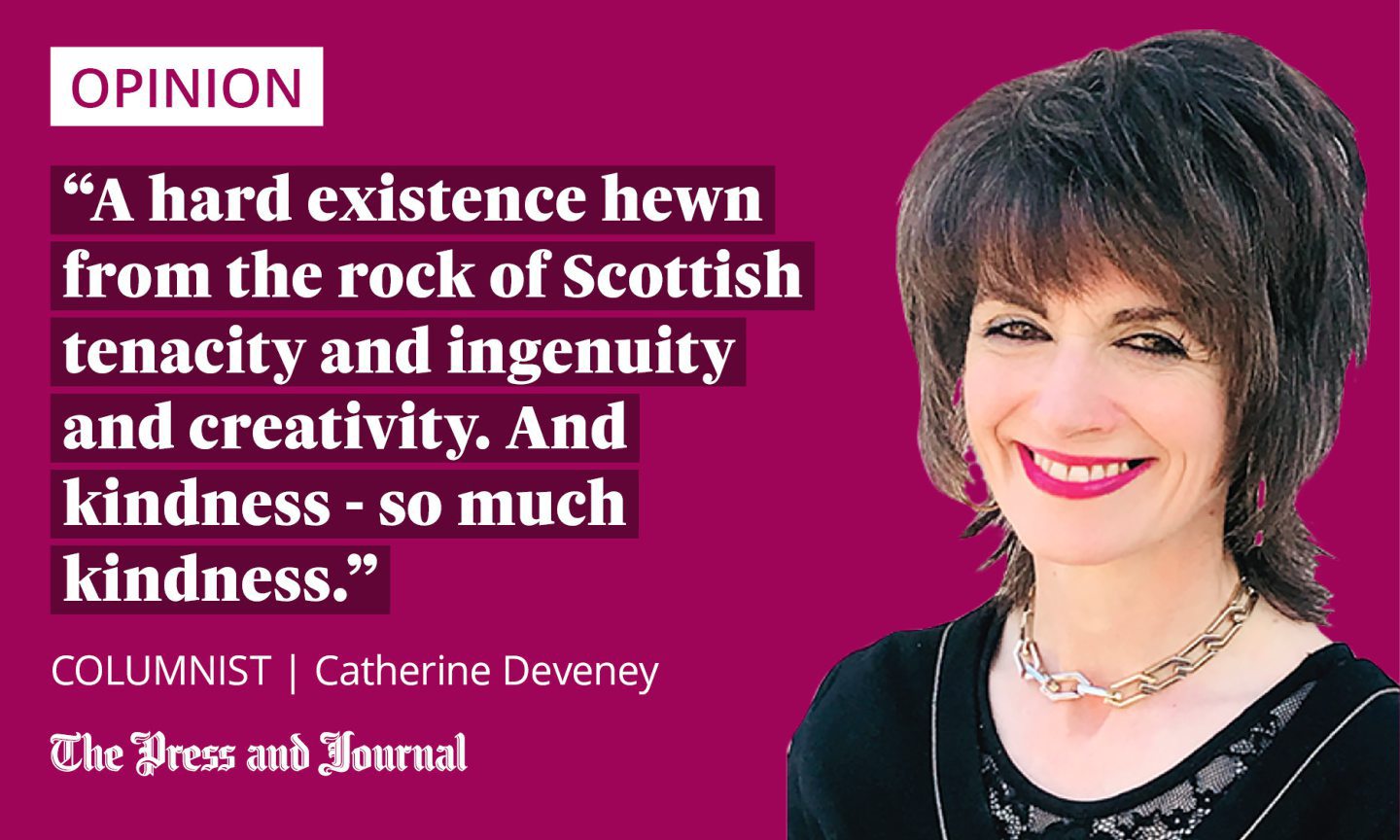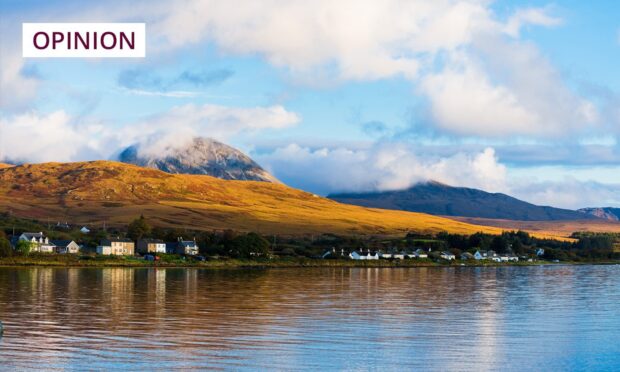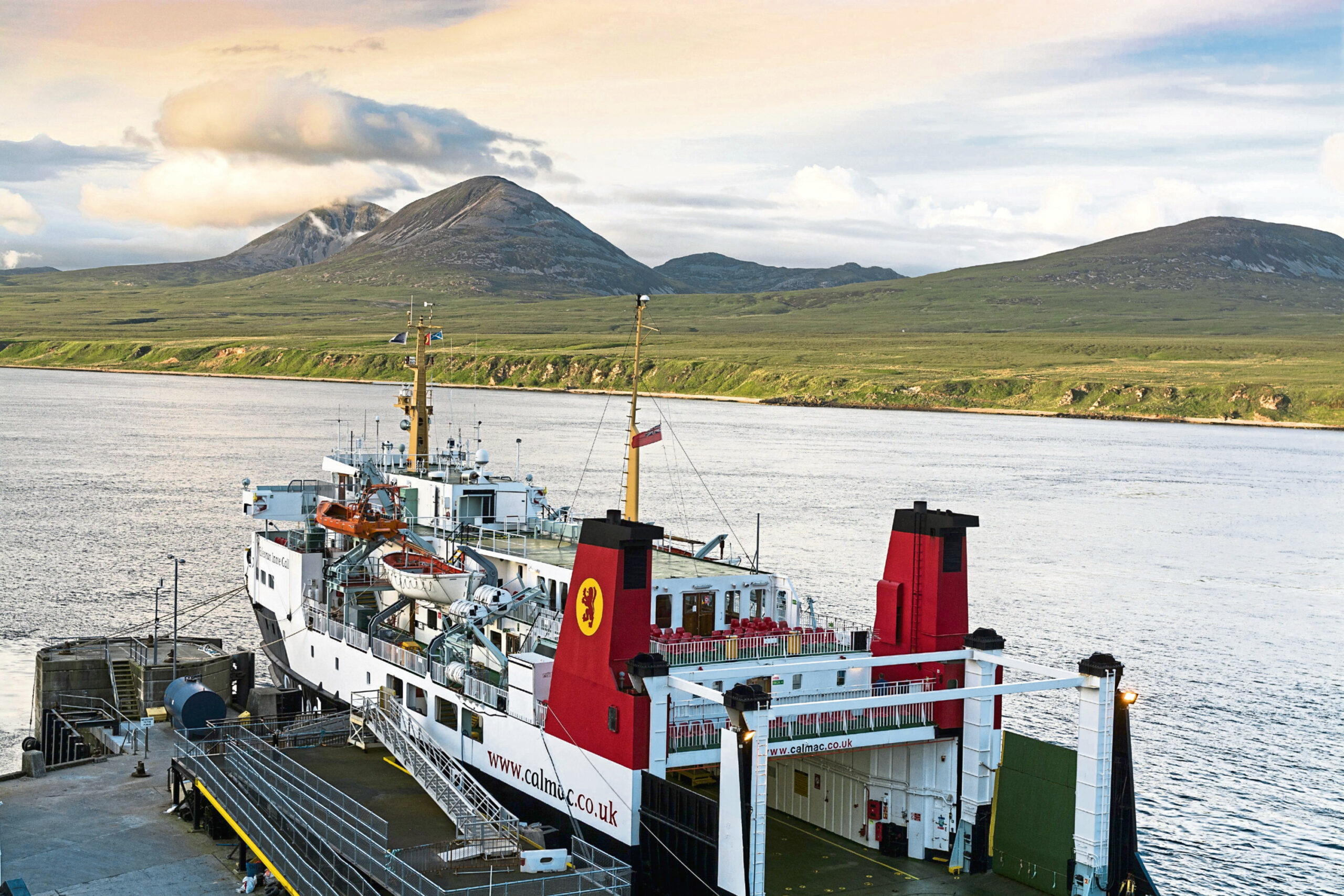We laid him to rest in the earth at the apple trees of his Hebridean home, sprinkling the grey ash from the urn into the ground at each one, covering it with the damp earth that clung, brown and peaty, on our fingers.
As the ash fell, I thought of the smiling boy we viewed the night before in photographs, now finally consumed by illness. But, for sure, his spirit was here, while the piper played The Dark Island, where “the beauties of heaven unfold by the sea.”
I washed the earth from my fingers afterwards in the kitchen sink, the earth running brown in the stream of water from the tap, but I knew there was something of this that would never wash away.
No service, he insisted. No ceremony. No religion. Just chat and a drink for family and friends. It felt almost disrespectful to be picking up the ashes like a shopping order, catching the undertaker as we rolled off the ferry. But this was his life, and this was the Hebrides, and this was what he wanted.
The urn was passed over awkwardly, and we drove to his house. When we put our hands on it to carry him over the threshold together, I had a new understanding of so many things. He was from the city, but I knew that we had truly carried him home, and I realised home is not necessarily where you were born, but where you choose to be.

It seemed so hard without the lifebuoys of ritual, but we made our own: the mourners laying a rose each under the trees, blood red, petals curling already without water; and we passed round oatcakes and cheese, and the whisky that represented the local economy that is built on distilleries.
It felt immutable here, a traditional way of life that exists a couple of hours by sea from the mainland, a place with one main shop that is reliant on tides and ferries, that has few of the fripperies of modern life. No plethora of coffee shops and takeaways, few choices, but a richness of wildlife and community, a place where your nurse is also your friend.
He laughingly referred to himself as the hermit, but travelled to the Black Hills of Dakota for six weeks at a time, where he became someone else. There, the hermit talked to strangers in bars, and challenged them at pool, and picked up, over the course of 20 years, a colourful cast of characters as friends. Will the Cowboy… Michele the Native American… and barmaids and customers of dingy dives in dusty towns. Bars whose passing he lamented when they burned down and were replaced, to his disgust, by wine bars.
Was this his alter ego? Yes, he answered cheerfully. It was the person he could not be on the island. So, we buried that other one as well, under the trees, a key ring nestling amongst the ashes that his American friends had sent which said: “Never forget the difference you made, or the lives you touched”.
So much to defend, support and preserve in island ways of life
Those funeral days were an eye-opener – a window into Scotland’s remotest communities. The eye-watering prices, the challenging transport and problems with ferries, the lack of affordable accommodation and the rural poverty. A hard existence hewn from the rock of Scottish tenacity and ingenuity and creativity. And kindness – so much kindness from strangers.
He was proud of this place and of his country, his Scottish cottage made of grey local stone, where water lapped on the beach across the road, and gulls screeched, and a clump of delicate blue forget-me-nots struggled valiantly through the earth at the back door.
This island with its traditional distilleries is also the home of the world’s first wave-powered electrical generation station, built in 2000
A person can be multifaceted, have their buried alter ego, and so can a place and, indeed, a nation. This island with its traditional distilleries is also the home of the world’s first wave-powered electrical generation station, built in 2000; the old and the new nestling together for survival.
Something here feels genuinely like time travel. Yet, there is also something of right now – people’s determination to survive on their own terms and in their own way – and there is something lovely in that. In next week’s election, whichever party takes power, there is so much to defend, support and preserve in island ways of life, so much value worth fighting for. Scotland is a modern nation, but also one with a great heritage.
We sailed away afterwards, the CalMac ferry pushing out past the gaily painted boats of the harbour, their white and blue and yellow hulls bobbing in the waves. The harbour houses, arranged in a bright semicircle round the bay, seemed like open arms, ready to welcome or console, as the ship made its way steadily out to sea.
The people are what make our islands, and what made this one home to a city boy. The strains of The Dark Island still resonate days later. Soon I’ll capture the magic that lingers for me, when I’m back once more upon the dark island.
Catherine Deveney is an award-winning investigative journalist, novelist and television presenter


Conversation